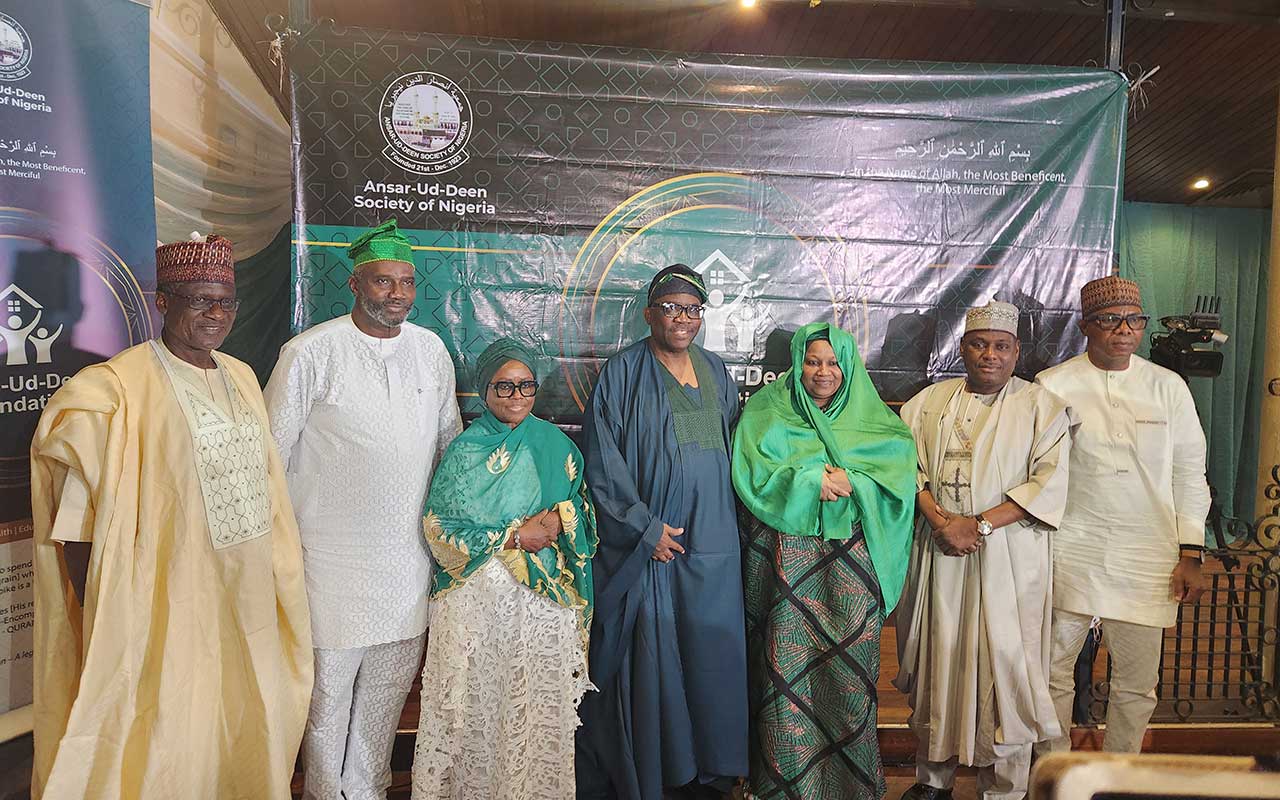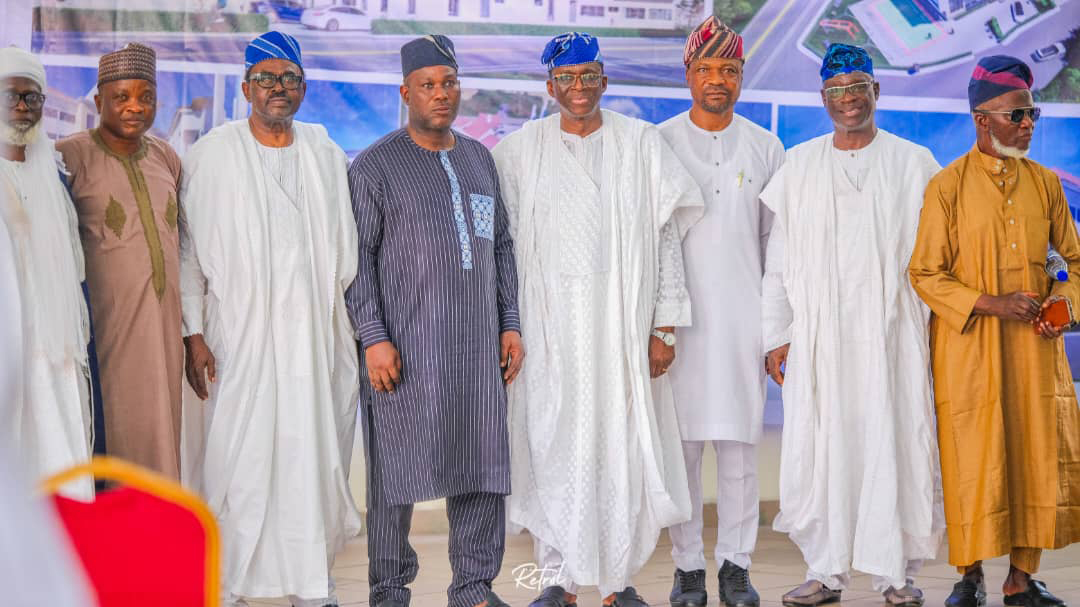By Kabir Alabi Garba
Although the declaration made by the Chairman/CEO of the National Hajj Commission of Nigeria (NAHCON), Professor Abdullahi Saleh Usman that ‘there’s no split in the commission’ appeared to have doused the tension, the bickering in the past few weeks has been overwhelmed. It was like a divided house whose collapse was imminent as stakeholders from within and without were up in arms against the leadership of the Hajj management agency.
It began with the allegation of poor welfare by the NAHCON’s staff union followed by the announcement of the withdrawal from participating in the 2025 Hajj exercise by some private operators, alleging underhand dealing and frustration in getting better deal for their pilgrims.
And the latest was the petition by the aggrieved board members forwarded to Vice President Kashim Shettima accusing the chairman of gross misconduct, violation of procurement regulations and exclusion from activities at the commission. But Prof Saleh Usman has since debunked the allegations saying, “they were intended to cause confusion and to tarnish his hard-earned image as an Islamic scholar and a proven administrator.”
Added to the ‘gloomy’ atmosphere was the rumour early in the week that Nigeria was among 14 countries that Saudi Arabia authority slammed with entry ban which could affect participation in 2025 Hajj. It took the intervention of the Federal Government to debunk the rumour with the clarification that the visa restriction was targeted at Umrah pilgrims and principally designed to ensure smooth and hitch-free hajj operation this year.
The Saudi government, in a notice widely circulated by Gulf-based media, was reported to have announced a temporary suspension of short-term visa issuance to nationals from 14 countries, including Nigeria.
The suspension, which takes effect from April 13, 2025, affects various visa categories, including single and multi-entry business visas, tourist e-visas, and family visit visas. Other countries affected by the new directive, according to the report, include Egypt, Morocco, Algeria, Sudan, Ethiopia, India, Tunisia, Yemen, Jordan, Iraq, Indonesia, Pakistan and Bangladesh.
According to the directive, holders of existing short-term Saudi visas from the affected countries may still travel to the kingdom before April 13, but must exit no later than April 29, 2025. Failure to comply may attract penalties, including a potential five-year entry ban.
Also, NAHCON has expatiated on this saying that it has received an official notice from Saudi Arabia to the effect that “13th April is the deadline for those who wish to enter the kingdom for Umrah, and 29th April is the deadline for those in kingdom for Umrah to exit the country in preparation for this year Hajj.
“The notice says any violation will attract a fine of SR100,000 (one hundred thousand Saudi Riyals). Please all Umrah pilgrims are advised to be guided by this directive to avoid any embarrassment.”
Now that the season of 2025 Hajj is about to peak with the first flight from Nigeria already scheduled for May 6, 2025, any bickering or disaffection at this point in time will be a disservice to the intending pilgrims and Nigeria as a country. Reason all stakeholders should embrace olive branch being extended by the commission.
In a statement titled: ‘Let’s Work Together for a Successful Hajj’ and issued by NAHCON Assistant Director, Information and Publication, Fatima Sanda Usara, the commission decried what it tagged, “a series of bickering and exchanges in the media, coming at a critical period when preparations for Hajj are peaking.”
The statement reads further: “However, on the positive side, these exchanges reflect the keen interest of various stakeholders in ensuring the success of Hajj. It shows that, despite differing opinions, all parties share a common concern for the welfare of the pilgrims.
“That said, the back-and-forth also indicates a possible gap in understanding the specific roles and responsibilities of the different actors within the Hajj industry. This misunderstanding is perhaps responsible for some of the frictions being experienced as more efforts are geared towards the successful delivery of Hajj 2025.
“It is worth recalling that since the assumption of office by the new NAHCON Chairman, Prof Abdullahi Saleh Usman, there has hardly been sufficient time to convene a stakeholders’ conference or retreat where roles, responsibilities, and limitations of each party could be clearly spelt out.
“Also recall that before his untimely exit from office, Malam Jalal Ahmad Arabi had indeed planned to hold such a retreat to address contentious issues and promote smoother operations going forward.
“The Commission fully understands these dynamics and, therefore, appeals to all stakeholders to kindly prioritize collaboration towards the immediate goal of delivering a successful Hajj exercise. We assure all concerned that, by Allah’s grace, the Commission will convene such a retreat after the Hajj, where all issues can be thoroughly discussed and amicably resolved.
“For now, our stakeholders’ collective priority should be ensuring the success of the forthcoming Hajj, especially considering the huge financial, emotional, and spiritual investments that pilgrims have made in order to discharge this spiritual obligation. Let not our differences of understanding affect the trust reposed on us to serve our pilgrims efficiently.”
It should be noted that piety that Allah (SWT) has recommended in the Quranic verse quoted above as the best form of necessary provision for intending pilgrims should also guide the activities of the managers of the exercise. With the fear of Allah, stakeholders will know that Hajj is a divine obligation that attracts divine reward and as well, divine punishment if it is handled carelessly. May Allah accept the exercise as an act of Ibaadah and overlook shortcomings arising therefrom inadvertently. Aameen!






